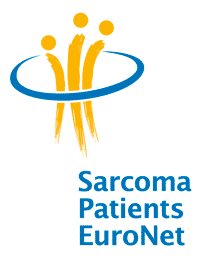Clinical studies are an essential step in the development of novel treatment methods for cancer and other diseases. They show researchers what works for the welfare of patients and what does not. In addition to safety and effectiveness they also determine whether the side effects of a new treatment are acceptable and, increasingly, what quality of life for patients is associated with a new therapy. Especially for rare cancers such as sarcomas, clinical studies are an important component of treatment concepts because here the standard forms of therapy are often limited. Nevertheless, only up to 5 % of cancer patients actually participate in clinical studies and a lot of studies have problems to recruit the necessary number of patients.
Reasons for low participations in clinical trials
- Lack of knowledge and information
Often, people who are diagnosed with cancer hardly ever know anything at all about clinical studies. Only a few of them know what clinical studies are, how they are carried out, and what benefits and risks they have, and few are able to understand the terminology that is commonly used in clinical studies. When they are diagnosed, many patients do not even realize that the treatments they are undergoing are based on clinical studies. Society as a whole and the health care system in particular make far too little effort to inform people about clinical research.
Patients rely on their own doctors, or look for information in networks related to their disease at university centers or on websites, or they get information from other patients or from patient advocacy groups. In the case of rare cancers, the cooperation between patient groups, experts, and the pharmaceutical industry is particularly important. - Lack of involvement of patients’ needs
For years, clinical studies have been developed for patients, but not developed with them. Unfortunately, the perceptions, needs, and reality of the patients rarely play a role in the design and implementation of clinical studies. Patient groups are only rarely involved in the early planning stages of a trial. However, a few simple factors are often the ones that determine whether a patient participates in a study or not.
The solution lies in closer cooperation, i.e. in developing studies from the perspective of the patient and in close collaboration with patient organizations.
There are two groups to address:
- Doctors, principal investigators, researchers, and representatives of the pharmaceutical industry are called on to involve patient representatives in the early stages of a study and to make use of their knowledge
- Patient groups and patient support groups should be emboldened to demand involvement in clinical research, and to become involved in a competent way, and to educate themselves.
We urgently need patient advocates to be involved in clinical studies, not as researchers, but as patient representatives who are well acquainted with the reality of the patients' situation.
Clinical Studies From A Patient Perspective - Interview with Markus Wartenberg, Co-Chair of SPAEN
Clinical studies are an essential step in the development of novel treatment methods for cancer and other diseases. They show researchers what works for the welfare of patients and what does not. In addition to safety and effectiveness they also determine whether the side effects of a new treatment are acceptable and, increasingly, what quality of life for patients is associated with a new therapy. Clinical studies are an important component of treatment concepts for rare forms of cancer because here the standard forms of therapy are often limited. Nevertheless, only up to 5 % of cancer patients actually participate in clinical studies. Recent studies show that 3 out of 5 phase III studies are not able to recruit the necessary number of patients. Many experts now criticize the high costs of studies, the long duration, the unrealistic design and lack of consideration for patient needs.
Please read an pdf interview with Markus Wartenberg about clinical studies from the point of view of patients and patient support groups (375 KB) . Markus is the current co-chair of SPAEN Sarcoma Patients EuroNet Assoc. – the international network of Sarcoma, GIST and Desmoid Patient Advocacy Groups.

